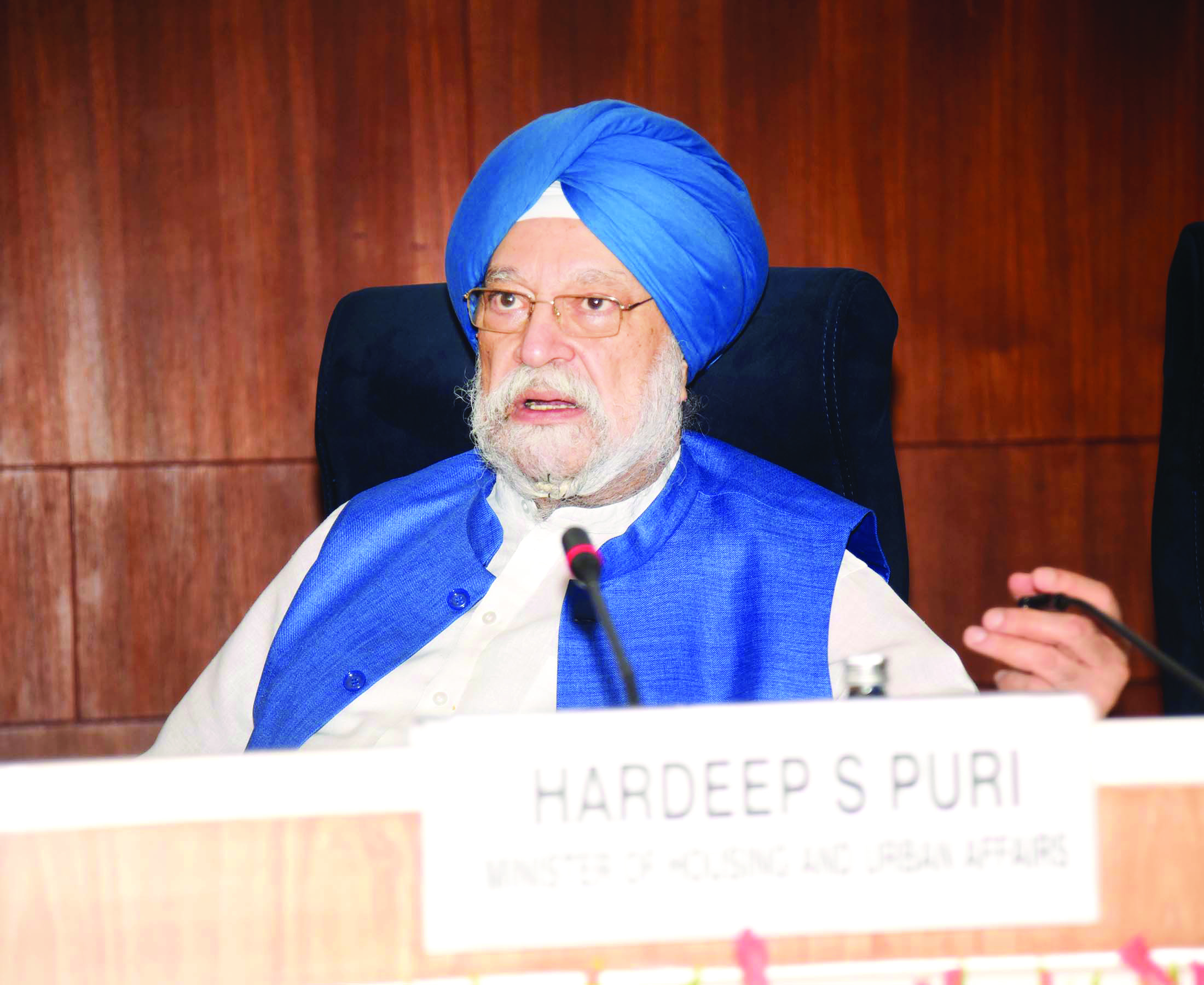Smart Cities Mission is template of urban development, says Hardeep Puri

As the government is aiming to complete all the projects under the Smart Cities Mission by June 2024, the Ministry of Urban Housing Affairs (MoHUA) is mulling to launch its edition to take forward the infrastructure development growth story in rural areas as well. In an interaction with Dhirendra Kumar, Union Minister Hardeep Puri talks about the journey of Smart Cities Mission that has become the fastest implementing project and a template of urban development in India. Excerpts:-
Could you please give an overview of the Smart Cities Mission and its objectives?
The Smart Cities Mission (SCM), which was launched on June 25, 2015, is aimed at fundamentally transforming urban living in India. Its primary goals are to provide essential infrastructure, ensure a clean and sustainable environment, and enhance the overall quality of life for our citizens through the application of innovative smart solutions.
The SCM embodies Prime Minister Narendra Modi’s vision for a ‘New Urban India’ and it is a key component of India’s objective of becoming a developed country by 2047.
The SCM has sparked innovation in India’s urban ecosystems while also building core infrastructure and strengthening services in India’s 100 biggest cities.
It has fostered deep partnerships with government, global organisations, partner cities, academia and industry.
It’s been claimed that the SCM is the fastest implementing project of the government. How do you corroborate this claim?
Yes, it is and I’m thankful to our Prime Minister for trusting upon me for this utmost responsibility in 2017. The project was started in June 2015 and I took over as Urban Development Minister in September 2017. Since then the total 7,934 projects sanctioned at a cost of Rs 1.71 lakh crore and 6,069 projects worth Rs 1.10 lakh crore completed, while another 1,865 projects worth Rs 60,250 crore on target for completion by June 2024.
I have not seen any other government programme executed at the pace that the Smart Cities Mission has been implemented. Despite the pandemic, the expenditure under the mission has meteorically risen from Rs 1,000 crore in 2018 to Rs 1,10,000 crore today. This is a matter of extreme pride, and I am grateful to the cohort of the Smart cities for making this possible.
I take a pride in announcing the fact that close to Rs 25,000 crore worth of PPP projects delivered, more than 2,700 kms of smart roads constructed, close to 7,000 smart classrooms built, more than 7,500 new buses (2,000 electric buses) deployed, more than 50 lakh LED/solar lights installed, over 100 MW of solar power generated through mission’s projects, over 300 smart health centres constructed, 1,884 emergency call boxes, and 3,000 public address systems and traffic enforcement systems installed to improve public safety.
Moreover, 47 cities have developed 180 waterfront projects, above 200 markets have been redeveloped across 68 cities and 1,300 public spaces created, including restoring many heritage monuments.
As it’s been claimed that all projects under the Smart City Mission are likely to be completed by June 2024, if so, then does it mean that there would be a second edition of Smart City Mission?
We have planned to take forward the success of the Smart Cities Mission to other cities as well. The ministry has started working on the follow-up scheme of the mission and the flagship scheme is likely to be executed by next year.
The proposed follow-up scheme Phase 2.0 of the Smart City Mission will be built upon the successes and lessons learned from the initial phases and will further shape the urban landscape of India while pushing sustainable development.
What are key milestones achieved by the Smart Cities Mission?
Besides development of many state-of-the-art facilities in most of the smart cities, the establishment of Integrated Command and Control Centers (ICCC) in all 100 Smart Cities has become the signature takeaway of the SCM as these ICCCs serve as the operational hub for city management, using technology to improve various aspects of urban life, such as crime tracking, safety, transport, waste management, and disaster response. With the help of ICCC, the civic bodies have been able to control the incidents of crime, provide medical facilities on an urgent basis, improving the waste management and sanitation facilities, etc.
Despite all the success stories, there are some cities that have been left behind in completing the projects under the Smart Cities Mission. Do you have any plan to assign a mentor for those cities?
It’s not just about mentoring; we are constantly doing hand holding with them. The project is not of the Central government alone. The state governments have a major role to play in development of smart cities in their respective states under the Special Purpose Vehicles.
We are constantly reviewing the project implementation in all the cities under the SCM. We measure the lagging behind cities on the basis of completion of projects. However, in some cases, the projects are completed but not efficiently. We are quite confident that all the cities under the SCM would prove to be a template of urban growth story.



